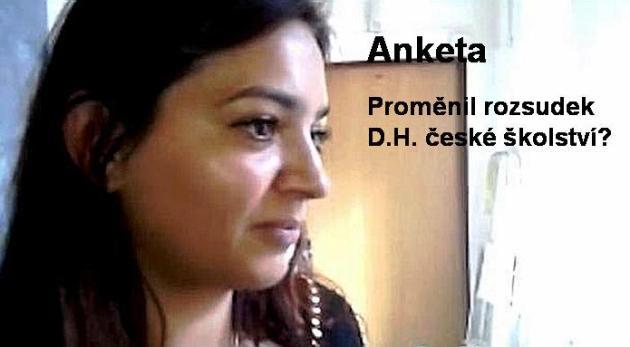Jolana Šmarhovyčová: Six years after D.H. v Czech Republic, all that has changed are the school names

This month marks six years since the groundbreaking judgment from the European Court of Human Rights (ECtHR) in the case of D.H. and Others vs. the Czech Republic. That judgment confirmed that the Czech Republic discriminates against Romani children by disproportionately sending them to what were once called the "special schools" and today are called "practical schools."
The judgment of 13 November 2007 ruled that the Czech Government violated the ban on discrimination and the right to education of 18 Romani children from the Ostrava area by assigning them to the "special schools". The Grand Chamber of the ECtHR handed down the ruling on appeal.
The judgment was adopted by a vote of 13:4. The Czech Republic, according to its findings, violated the article of the European Convention on Human Rights banning discrimination and an article of a protocol to that convention concerning the right to education.
Despite international criticism of the Czech Republic, the problem persists. News server Romea.cz has asked three figures involved in human rights and the schools whether the D.H. judgment has transformed Czech education, and if so, how?
We contacted Ondřej Liška, the Green Party chair and former Education Minister who advocated inclusive education during his time in office; Michaela Marksová Tominová, the Czech Social Democratic shadow minister for human rights and the family; and Jolana Šmarhovyčová of the Life Together (Vzájemné soužití) association. Thanks to that NGO, the case of D.H. and Others was filed and pursued all the way to Strasbourg.
The following is Ms Šmarhovyčová’s contribution.
Changing the names doesn’t change the reality
Six years after the European Court of Human Rights judgment against the Czech Republic, almost nothing has changed. The only change is that we now used different terminology and the signs with the names of schools have been modified.
What were once called "special schools" today bear the name of "practical schools". Even in mainstream primary schools that are segregated, Romani children are still being educated according to curriculum for children with "light mental retardation".
The percentage of Romani pupils in such arrangements is, according to statistics published by the ombudsman, the same as it always has been, but in order for us to see what the reality is, we don’t even need statistics – all you have to do is go take a look at the "practical schools". Romani children continue to be enrolled into "practical schools", often only because of social handicaps.
The financing of schools also remains the same. A school receives twice as much funding per child diagnosed with light mental disability as a mainstream school receives for children without such diagnoses.
Moreover, the insufficient education of the teachers who work with Romani children, and their frequent interventions based in ignorance of Romani specificity, are not creating conditions for a conflict-free coexistence between the majority and minorities in Czech society. Most nonprofit organizations and other institutions just make money on the problem of the segregation of Romani children and are not solving the problem.
I see just one development as positive: Thankfully, more and more Romani parents are realizing the importance of education for their children. More and more of them now know that segregation is illegal and that they can defend themselves against it.